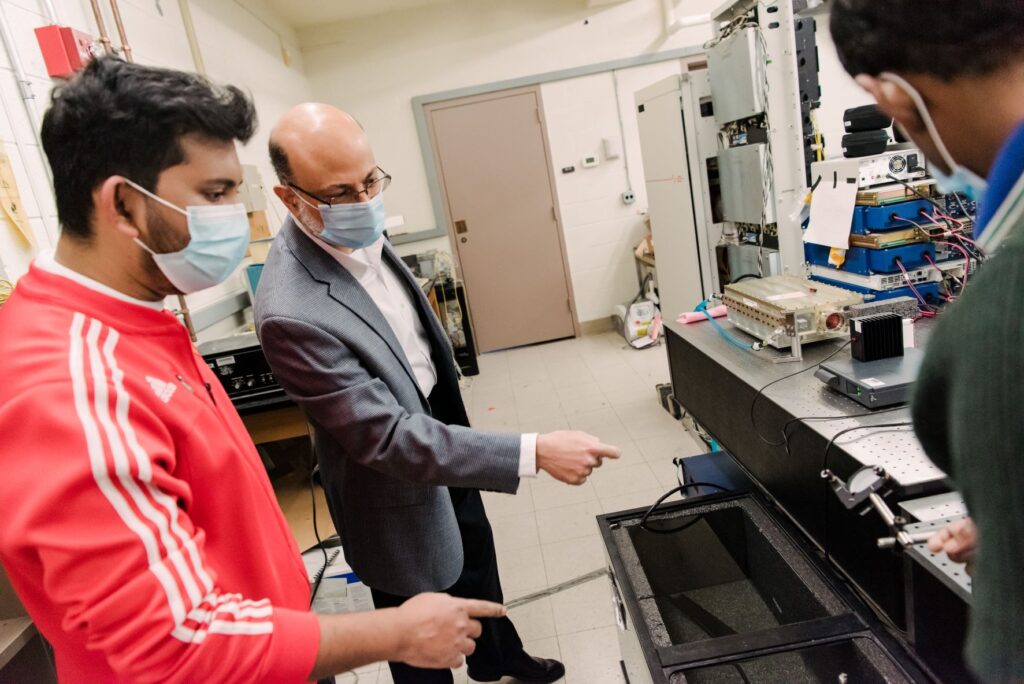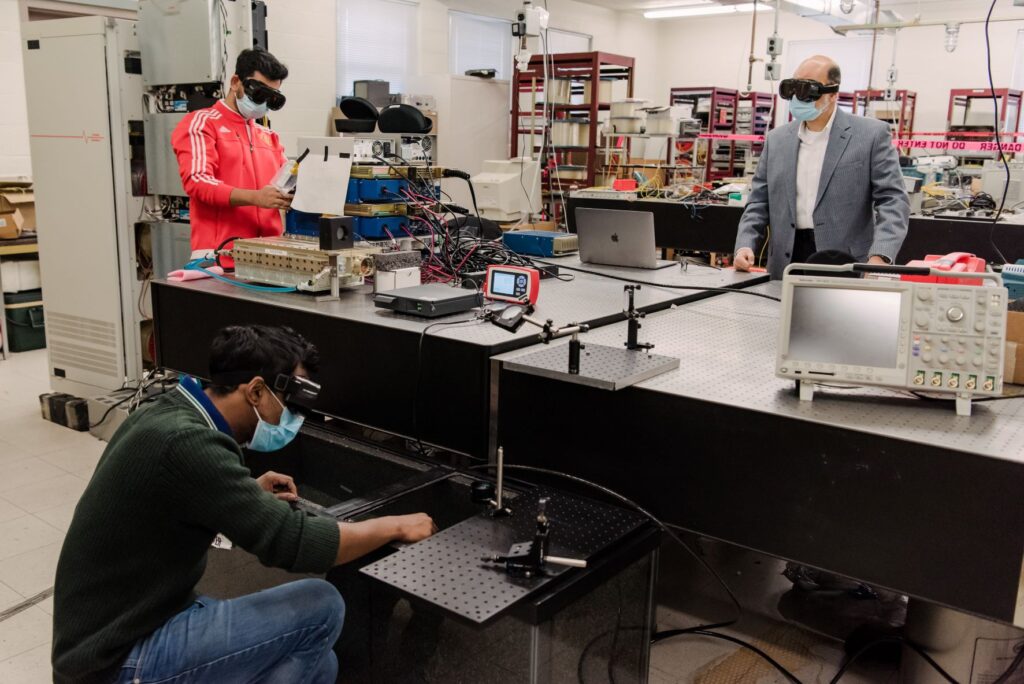
UMBC’s Mohamed Younis has long been known as an innovator in wireless communications and networks, addressing complex protocol and security challenges. Now, he is one of the newest fellows of the Institute of Electrical and Electronics Engineers (IEEE).
The IEEE is a professional organization dedicated to advancing technology. It is the world’s leading and largest technical society, with over 400,000 members in more than 160 countries.
The organization awards the IEEE Fellow distinction to members who have contributed to their fields in particularly significant ways. Less than one percent of all IEEE members are elevated to this status. This year, IEEE selected 331 new fellows worldwide.
 Mohamed Younis, center, works with two students in his lab. Photo by Marlayna Demond ’11 for UMBC.
Mohamed Younis, center, works with two students in his lab. Photo by Marlayna Demond ’11 for UMBC.
“I am very proud of this recognition from IEEE,” says Younis, professor of computer science and electrical engineering. “It’s the icing on the cake.” He joins six other faculty in UMBC’s computer science and electrical engineering department who have earned this honor.
Driven to find solutions
Younis studies embedded operating systems as well as sensor networks and wireless networks. A passion for finding solutions to thorny technical challenges drives his research.
 Mohamed Younis, right, works with two students in his lab.
Mohamed Younis, right, works with two students in his lab.
Throughout his career, he has published more than 300 papers in conference proceedings and journals. With gratitude for his speaking and publishing opportunities, he advises students to consistently focus on high quality, impactful research. “If you set a high standard and tackle important problems,” he shares, “people will recognize your work.”
Younis’s current research is funded by several grants from the National Science Foundation. One project focuses on the design of underwater networks and communication across the air-water interface using optoacoustic links, with implications for national defense.
Banner image: Mohamed Younis. All photos by Marlayna Demond ’11 for UMBC.





